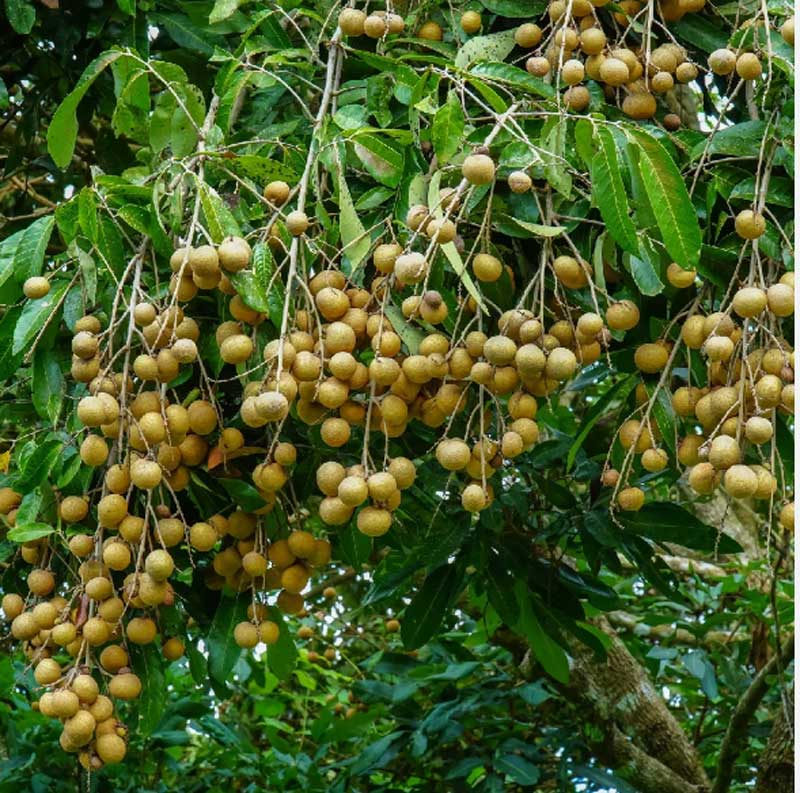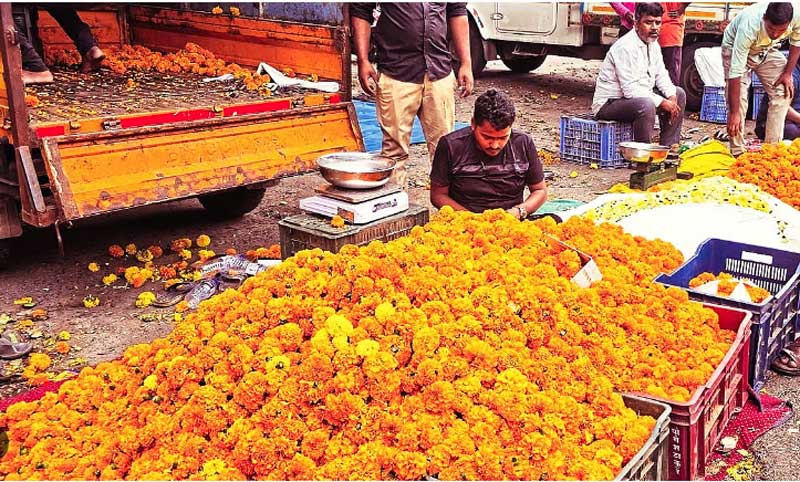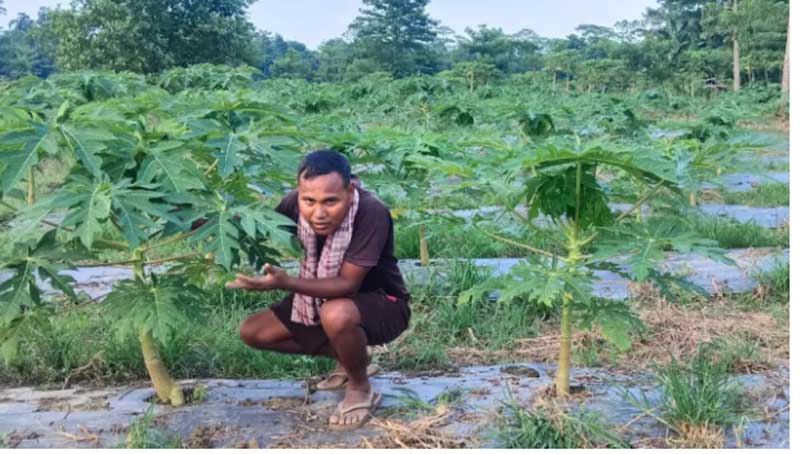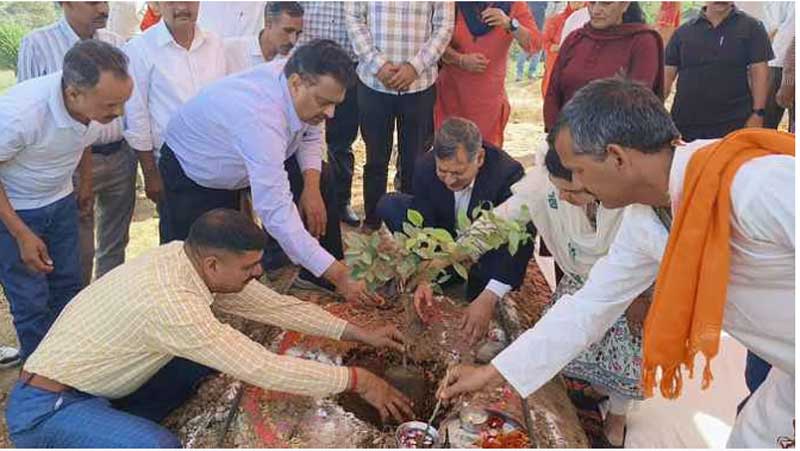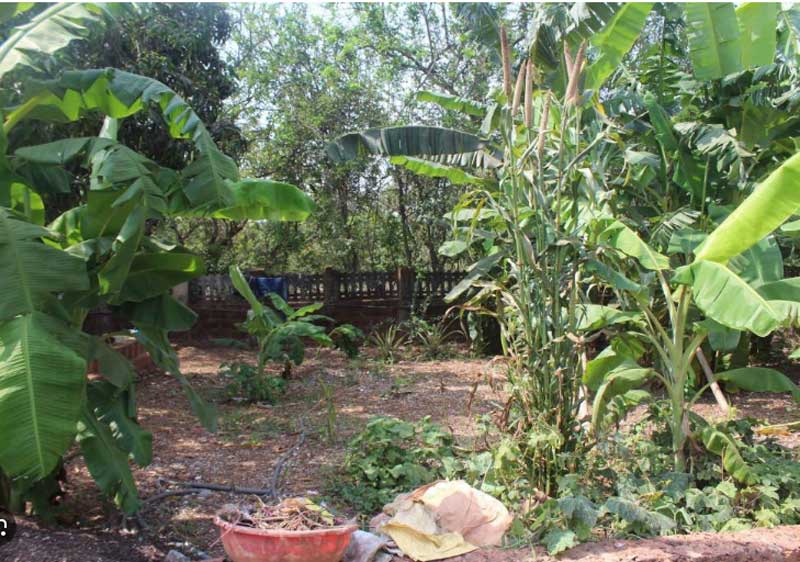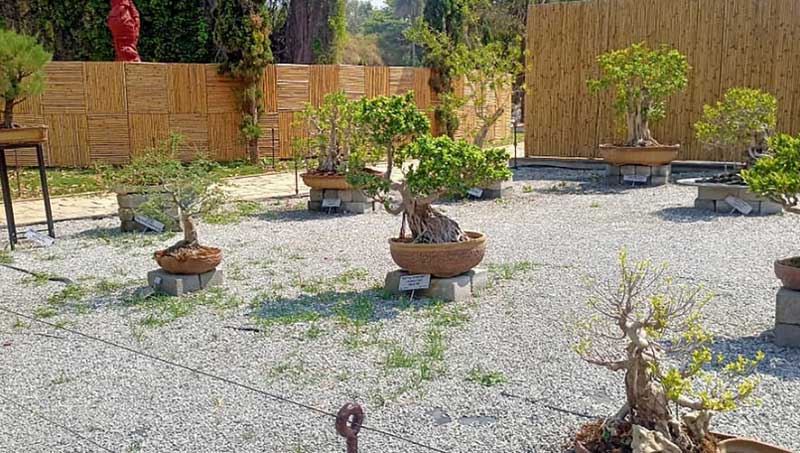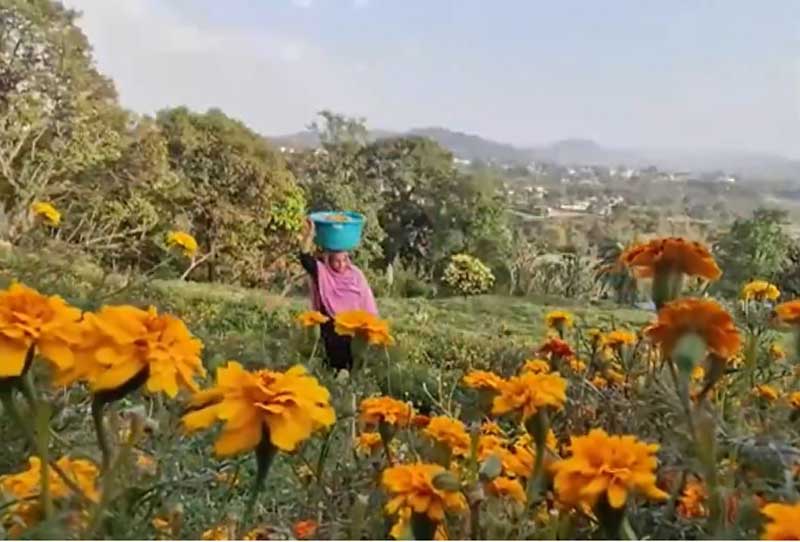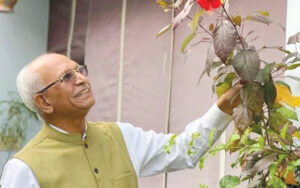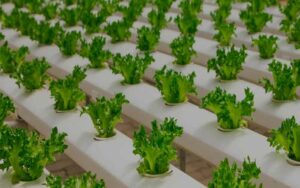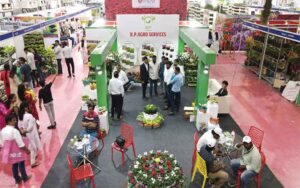Today is the Opportunity to Build Tomorrow: Dr. Shamkant Gaidhane
Dr. Shamkant Gaidhane
A Landscaper professional having 25 years of varied experience in the Landscaping Industry. He aspires to use better technology and techniques in landscape development.
He deals in innovative landscaping and horticultural development under CSR activities to enhance the greenbelt. He believes that everything is possible with consistent efforts.
Dr. ShamkantGaidhane has done his M.sc in Agriculture. He has an agricultural background. He belongs toPohora village of Bhandara district of Maharashtra. He started his career in 1994 with Deepak Fertilizers & Petrochemicals Corporation Ltd. Later on, got exposure in Indo Gulf (Aditya Birla group), BharatiyaAgro Industries Foundation (BAIF), JSW Dolvi, Welspun and is presently working as general manager of horticulture and plant administration in JSW Bhushan Power & Steel Limited, Odisha.

1. What made you decide to pursue this field of landscaping?
Horticulture and gardening were my passion since childhood and gradually they became my hobby too. During my previous postings, I used to spend a lot of my time, mostly Sundays with locally renowned botanists. We used to form groups with botanists and city people to the identification of local flora and fauna and visit the local forests.
2. Can you give a brief description of your present assignment?
Currently, I am Head of the Department, Horticulture and Plant Administration in JSW BPSL, Sambalpur works. JSW has provided me with a lot of scopes to take my work to the next level from where it is today. It has given me complete freedom to introduce different indigenous plant species, develop the greenbelt, enrich flora and fauna, horticultural development under CSR activities, development of waste disposal sites, organic recycling of horticultural biodegradable waste and finally improve the aesthetic look of existing areas.
3. How would you describe the motto of your organization/company?
• JSW Steel is one of India’s largest and most efficient steelmakers. Being the largest steel-making industry, it is also aware of its impact on the environment. It is shifting towards better technology and processes to reduce Greenhouse Gas (GHG) emissions for every ton of steel produced. It commits to reducing specific greenhouse gas emissions to 2.0 t C02/tcs by 2030. It also commits to achieving carbon neutrality at JSW steel coated products ltd., by 2030. We are equally aware of our carbon footprint and have taken active steps to reduce CO2 emissions.
• Initiatives have been taken as the formation of the Climate Action Group (CAG), Conducting Scenario Analysis for climate change risk assessment.
• We are also committed to ‘no net loss’ of biodiversity at all our operating sites by 2030. The Company, through its association with IUCN, is committed to increasing its efforts to protect and preserve the biodiversity of this nation.
4. A brief highlight on exemplary projects that you have worked on?
• Smruti Van, Bhuj Project – Got a golden opportunity to develop flora and fauna at Smruti van Bhuj. This project was developed by the government of Gujrat in the memory of earthquake victims where we carried out a plantation drive on behalf of Welspun and more than 7,000 plants belonging to 24 different species that are nurturing nature by enriching the soil and sheltering various forms of fauna. Plantation and conservation of different plant species including butterfly attractant plants, drought-tolerant plants suitable on a slope and eroded land and plants suitable for carving and painting purposes as it is a tourist spot.
• Rural Development Project–During my tenure at BAIF, I got the opportunity to execute large-scale rural development projects. One of these was executed by our Institute at Vaitagwadi (now Ashakiranwadi). Dr. A.P.J Abdul Kalam visited the program in 2005 during his presidency.
• The Tri-Party agreement is a joint initiative between Maharashtra Forest Department, JSW Steel Ltd. and TERRE Policy Centre. Plantation of around 51 acres of forest area took place. The local communities engaged at work also joined the program. Dolvi, located in the Konkan region of Maharashtra is known for heavy rainfall. Even though the site is very difficult to reach because of the hilly area, the plantation program was implemented successfully. The complete project was initiated, processed and implemented by my team with the company’s support.
• Tried and succeeded in the plantation of fruit crops like Dragon fruit, Date palm, Jamun, Mango, Sapota, Ber & Guava at Anjar& Kutch in Gujarat. Imparted training to farmers on improved agriculture practice.
• Several initiatives under CSR activities have been taken like conducting soil testing camps, training on vegetable cultivation, organic waste recycling and bio pesticides.
• Butterfly gardening–Developed butterfly garden at JSW Dolvi. Collection, plantation and conservation of multiple species, especially nectar and host plants for butterflies, is entertaining and can provide hours of enjoyment. The development of the butterfly garden was the next step in the enrichment of fauna. A total of 781 plant species were collected, planted and conserved on our campus, which attracted thousands of butterflies of 35 different species.
5. What are the challenges that you faced while working in this field?
Challenges are there in every field, but it solely depends on us how positively we are taking it:
• As horticulture is not a core sector, i.e manufacturing and production-oriented, consistent and result-oriented efforts were required to take it to management’s priority list.
• We are facing limitations in the availability of professionals and profession attached persons in this sector and definitely lack of manpower too.
• Most importantly, we are facing developmental limitations as the soil and climatic condition is completely different throughout the country due to which the suitability of plant species also varies. As a result, the output is different in different locations.
6. What steps should be taken in order to make horticulture a field that interests people?
There are multiple ways in which interest could be generated. Some of the initiatives we took include:
• Last winter, we planted the seasonal flowering plants which turned out to be the focal point for the township people to relax and to have their morning and evening walks.
• Awareness can be created among people regarding kitchen gardens for recreation and developing a habit of growing healthy and nutrient-enriched plants and also for growing medicinal and aromatic gardens.
• Social media like WhatsApp and Facebook can be a quicker way to make people aware of potted plants and how they can decorate their homes with them.
• The Initiative could be taken up for inspiring people to set up their nurseries and grow their businesses. This could even help employees post their retirement when they could spend their leisure time in a better and healthier way.
7. For better results, what are the most recent or recommended technologies in the field?
• Micro-irrigation- By this method, water is irrigated through drippers, sprinklers, foggers, rain guns and other emitters on the surface or subsurface of the land. Its advantages are water-saving, higher yield, ease in fertigation and saving the labour cost.
• Polyhouse technology and shade net– We can get the crop throughout the year by using protected structures. Since the crop is grown under a controlled condition, a better yield is obtained. The crop can be protected from weather vagaries and disease pest attacks.
• Organic farming/Jaivik kheti–It is a production system which avoids or largely excludes the use of chemical fertilizers and pesticides. It improves soil health and maintains environmental health by reducing the level of pollution. It uses fertilizers of organic origin such as compost manure, green manure, and bone meal. The use of Panchgavya, Jeevamrutha and Beeamrutha is highly beneficial.
• Vertical gardening – A vertical garden is a vertical panel on which plants are grown using hydroponics. They are also called Living Green walls, Plant walls and Moss walls. It is a special kind of urban gardening suitable for small spaces, particularly for decorating the walls and roofs in various styles.
• Vermi-composting – It is the scientific method of making compost by using earthworms. The vegetable, food waste or other organic household waste material can be converted to useable compost with low investment. It increases the microbial activity in the soil and improves the water retention and aeration of the soil.
• Integrated Nutrient Management– Maintenance of soil fertility through optimization of the benefits from all possible sources of organic, inorganic and biological components (green manuring, biofertilizer) in an integrated manner.
• Integrated Pest Management– It combines the use of biological, cultural and chemical practices to control insect pests in agriculture production.
8. Let the people know what your field entails.
There is immense scope for horticulture in the corporate sector. In near future, there might be a great scope for horticulture in different manufacturing industries, hotels industries, resorts, and airports through landscape development.
9. What is your secret to success?
JSW has provided me with a vast scope and flexibility to take horticulture to this level. With its flexible work culture, I can introduce several indigenous species and a wide variety of plants to the plant premises. Secondly, it’s my passion and attachment to horticulture that has brought me to what I am today. I truly believe that if we are determined on achieving anything, it is possible only through consistent efforts.
10. Is there any advice you would like to give to aspiring horticulturists on the subject?
Mother nature has a lot to teach us. I have learnt a lot of things over a span of many years. I believe that if one remains attached and is devoted to his/her profession, so for them, the sky is the limit. You should have the quest to learn. Understand your strengths and weaknesses and work accordingly. You should be confident in what you do. Youngsters must have the courage to stand up again after getting failed. Courage will take you to places.






